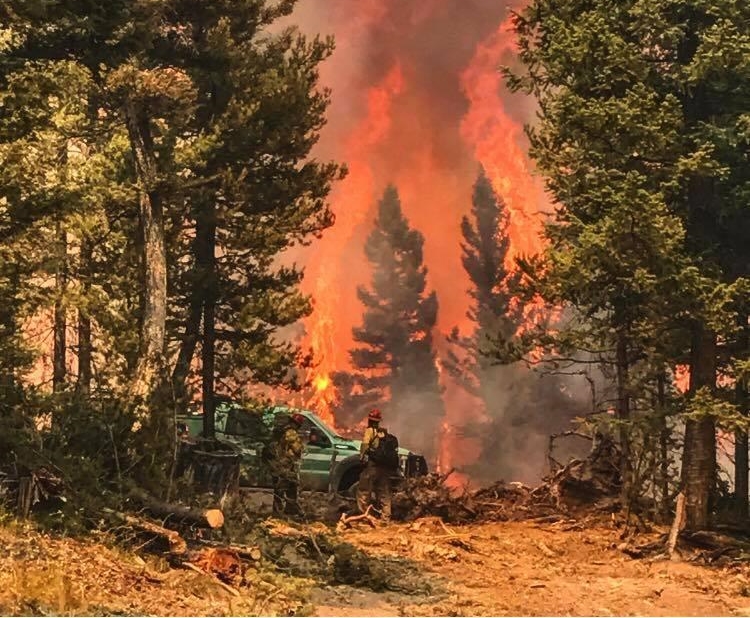Although KNRC’s roots are in Kansas–the middle of America both literally and figuratively–they hope to have impact far beyond the geographical Heartland. Having recently expanded their reach into Minnesota, KNRC hopes to open regional branches throughout the nation.
by Marjorie Haun
The Kansas Natural Resources Coalition (KNRC) is ascending on the national scene as a formidable advocate for property rights and citizen-centered governance of lands, resources and water. Holding its annual conference in Dodge City this week, JR Carlson, Executive Director and spokesman for KNRC, has assembled a slate of compelling speakers to address the issues foremost on the minds of America’s ranchers, farmers and landowners. Featured presenters include Trent Loos, (emcee) farmer and national radio personality; Harriet Hageman, natural resources (water law) attorney from Wyoming; Angus McIntosh, PhD, Constitutional Land Law scholar and Chairman of the Range Allotment Owners Association; Martha Boneta, family farmer from Virginia whose struggles with corrupt local officials and an aggressive land conservation group have gone on for 11 years; Elaine Willman, an expert on issues related to tribal governments and property rights; and Karen Budd-Falen, a Wyoming attorney and member of the Trump Interior Department transition team.
A coalition of Navajos and local leaders opposed to the designation of Utah’s Bears Ears region as a national monument traveled from Southern Utah to attend the conference.
KNRC was formed, in part, to provide a platform of legal advocacy for citizens who are at odds with government entities and NGO’s over private property rights. And, under the leadership of JR Carlson, KNRC is taking advantage of the brief reprieve that many believe President Trump is giving the country from burgeoning regulations and oppressive federal agencies, to have a direct impact on the functioning of the federal government. On March 13, when President Trump issued an executive order on a “Comprehensive Plan for Reorganizing the Executive Branch, ” Carlson and his colleagues went to work drafting their own plan to assist the President achieve his far-reaching order. KNRC’s suggestions address those federal agencies which, in recent decades, have become increasingly aggressive, corrupt, and unresponsive to people under their regulatory thumbs, including the Department of Interior and Bureau of Indian Affairs. Suggestions for reorganizing the Executive Branch formulated by KNRC include these common-sense remedies:
Department of Interior (Scientific Integrity)
- Secretarial order requiring DOI agencies to:
- Provide sufficient time for state and local government, tribes, and the general public to review information;
- Revise the rulemaking process to include an iterative agency review and public reporting step;
- Require independent third-party peer reviews and organizations;
- Require federal agencies to report dissenting scientific views and agency reasoning for not including those recommendations in decision-making
2. Executive order to extend requirements to all federal agencies for science-based actions.
3. Congressional action to ensure this level of scientific integrity become a permanent mandate for all executive agencies.
DOI, Forest Service, Bureau of Land Management (Managing National Forests for Water Quality & Quantity)
- Secretarial Order, Executive Order or Congressional mandate requiring all forests on federal public lands–except those contained within national parks of designated wilderness areas–to be managed for the purpose of securing statutorily-mandated water flow conditions, improvement and protection of those forests, and for the other purposes…
These are just two suggestions among many already in the works, and attendees at the KNRC conference have been invited to spend the morning of March 30, honing and building upon this list of well-founded suggestions for fixing much of what ails the administrative state.
For an organization devoted to the terrestrial issues of dirt, water, and the things that come from them, KNRC has no problem with stratospheric aspirations. Although KNRC’s roots are in Kansas–the middle of America both literally and figuratively–they hope to have impact far beyond the geographical Heartland. Having recently expanded their reach into Minnesota, KNRC hopes to open regional branches throughout the nation.
Holding a philosophical position rooted in America’s Founding Documents, KNRC has much in common with numerous other entities which have sprung up in recent years to defend the rights of states, local governments and citizens. KNRC’s ‘vision & values’ appeal to the folks who work hard to produce abundant and affordable food, energy, building materials, and other essentials. Because these same people are disproportionately impacted by misguided, and often destructive, government policies, KNRC’s mission is to ensure families making a living from the land remain free to do what they do best.
Find out more about KNRC here:
Vision & Values
Vision & Values –
The executive branch of American civil government possesses only those authorities delegated by Article II of the US Constitution and as codified by federal statutes. The Constitution is the unquestionable law of the republic, and it is the responsibility of the President to execute it and congressional mandates consistent with, and not beyond, Congressional intent.
The American judicial system has authority only to arbitrate disputes between parties. The constitutional scope of judicial authority is constrained to rendering decisions within the boundaries of Article III and existing statutory law. Courts neither create law nor confer authority beyond the intent of Congress; the breadth and depth of their decisions is delegated, limited and does not extend beyond the case being adjudicated. Any decisions that go beyond the limits of the case at hand or that create law are fiat.
The notion of precedent law is fraternal, without premise, substance or legal foundation; previous rulings serve only as history, reference and convenience and are not law unless concurred by Congressional authorization.
In recent history, federal agencies have conferred upon themselves — through the administrative rule-making process — expansive powers and authorities not present in original statutory law. Through the cumbersome, complex and ineffective public comment/rule-making process, federal agencies create for themselves rules, regulations and policies, imposing them on the public as binding and having the weight of law.
Rule-making processes are often one-sided, incomplete, based upon faulty or non-peer reviewed science, and usually lacking in the fundamental, procedural checks required by the Administrative Procedures Act (APA). Because federal agencies have been left to decide for themselves which comments to address or changes to make during rule-makings, agencies have been able to create a culture of rules that are difficult to challenge and expensive to litigate, often bearing little semblance to the Congressional mandates that produced them.
KNRC members understand the federal rule-making process must incorporate the views of local government and take place within the context of existing statutory law. Our approach is to assess compliance with the National Environmental Policy Act (NEPA) Regulations from the Council on Environmental Quality (CEQ), and provisions from the Federal Land Policy and Management Act (FLPMA) that require Federal agencies to account for County Natural Resource Land Use Plans. The review also includes a data integrity evaluation to ensure science under-girding the rules is accurate, measurable, reproducible and readily available as required by the Data Quality Act (DQA) (66 FR 34489).
KNRC’s vision for aligning administrative processes with organic, Congressional standards continues to be well received in the region and throughout discreet areas in rural America. As federal environmental initiatives indiscriminately impact agriculture, stifle industry, result in private property encroachment, and meander along in mediocrity, KNRC’s vision to buttress local government will continue to resonate, propagate and appropriately result in structural re-balancing.



